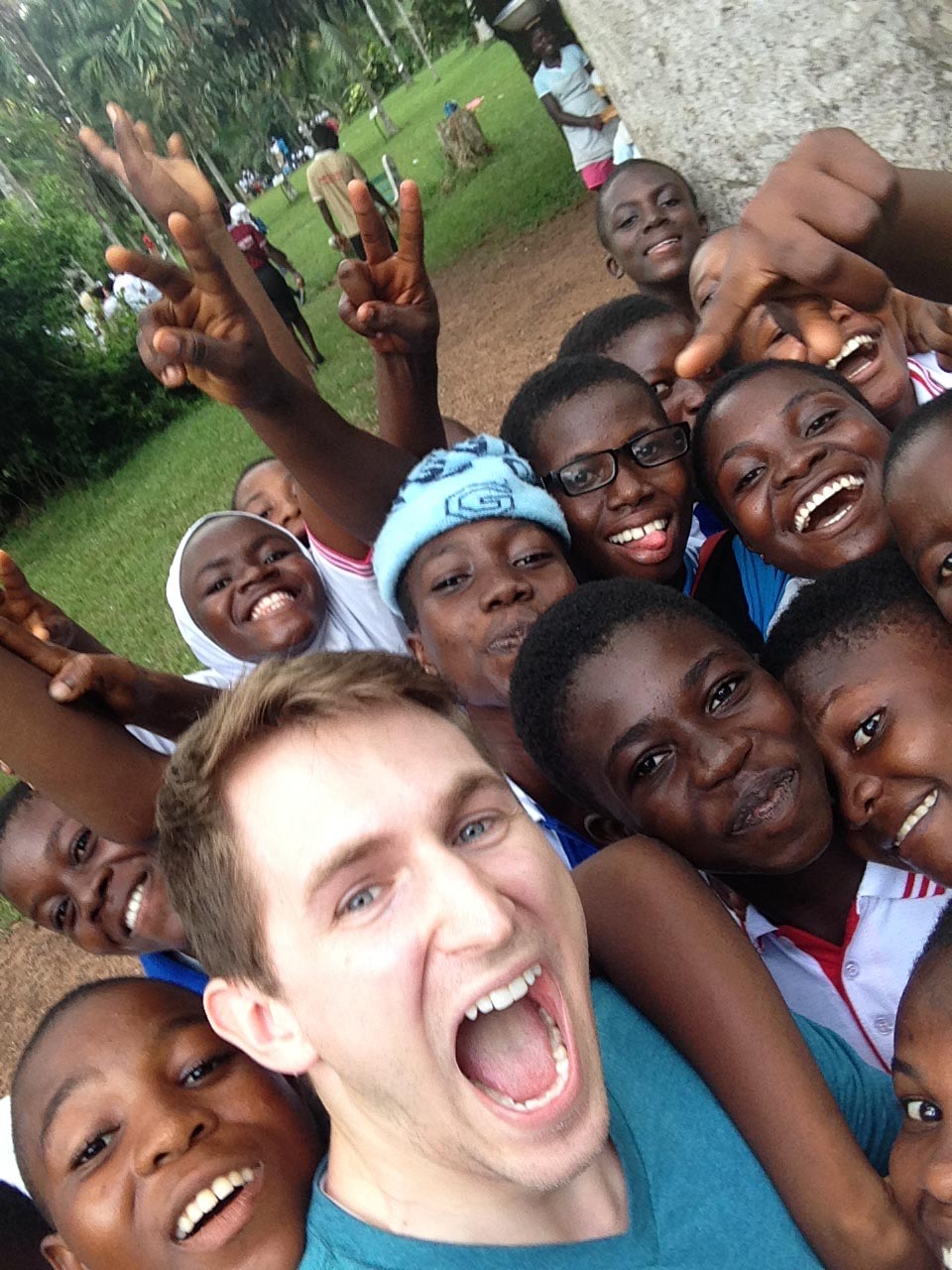ICLRS Student Fellow Benjamin Thornell, Externship in Accra, Ghana

While in West Africa, ICLRS Summer Fellow, Benjamin Thornell, visited a small island village. Living in mud huts and surviving on river water, food from gardens, and their own livestock, the residents of the village had little access to any modern conveniences except for recently installed electricity used primarily to charge large batteries to power lanterns in their homes. Returning to the Accra, Ghana office of legal counsel of The Church of Jesus Christ of Latter-day Saints, Ben‘s very next assignment involved the exact legal methods used by the LDS Church to authorize humanitarian aid to small towns such as the one he had just visited. It was a valuable, hands on experience in the benefits of legal service.
Benjamin Thornell’s interest in a 2016 summer fellowship with the International Center for Law and Religion Studies was sparked by a desire to better understand how to protect religious freedom. Ben’s responsibilities during his externship involved such things as localizing general law and contract to individual countries, researching and advising on the consequences of retail activity for non-profit organizations, and researching the structures of local governments and how they regulate religious bodies among other things. But as demonstrated by his experience in the village, he gained a first-hand point of view of the legal challenges faced in differing circumstances.
As law in West Africa is still fairly unsettled, the research and analysis techniques learned in his first year of law school were not particularly effective. However, the tenacity he learned as a 1L to make sure research was complete and accurate was very valuable. Of his externship, Ben said, “Almost all students learn how to give general legal support over the summer, but I learned how to give it across seven unique developing countries.” He looks forward to continuing his work as a summer fellow in Provo. “The second half of my summer will give me the opportunity to contribute meaningfully to substantive academic work and develop valuable relationships with professors in a field I’m interested in.”
Ben’s externship fulfilled his expectations. “I am grateful to say I learned what I hoped I would learn from my fellowship,” he said. “I feel I have the foundations of a working knowledge of how religious bodies function in the legal sphere and what kinds of challenges they face.”